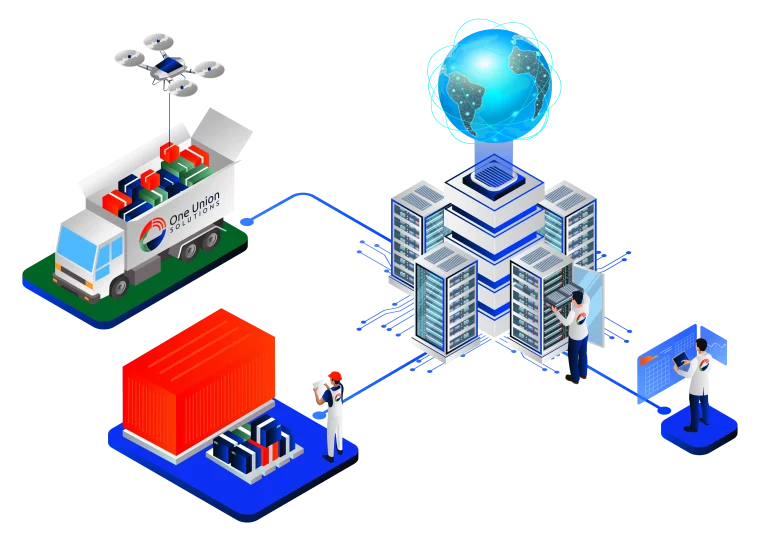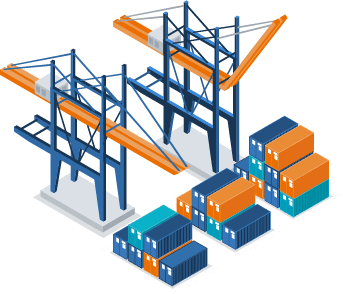Shipping IT & Telecom Equipment to Pakistan Diverse Industries
A good importer of record (IOR) in Pakistan has to navigate lots of complexities and challenges to make sure the imports go smoothly. Shipping IT and telecom equipment requires complying with regulations and customs procedures, getting certifications and licenses, paying taxes and duties, and adhering to specific trade rules. In this, One Union Solution plays a crucial role in providing the IOR services.
Tech industry:
There’s a growing tech industry in Pakistan that’s creating more opportunities for tech equipment and services. Licensed, tested, and labeled importers must comply with regulations for IT and telecom equipment. In addition, importers must follow data protection laws, which include getting the right consents, putting in place the right security measures, and respecting data subject rights. Technology in Pakistan goes beyond IT, with AI, blockchain, and IoT becoming increasingly popular. Business initiatives and incentives are offered by the government. It’s hard to navigate the complicated regulations and compliance requirements in Pakistan without the help of logistics providers. But if you take help from One Union Solutions, you will get hassle-free IOR services and make the process easy.
Medical industry:
For medical equipment to be imported into Pakistan, strict regulations and certifications must be met, including obtaining approval from the Pakistan Medical and Dental Council (PMDC) and the Drug Regulatory Authority of Pakistan (DRAP). There are complex tax and duty structures in Pakistan that change depending on the type of equipment and its origin. As part of its growth strategy, the government has implemented tax exemptions and subsidies. In order to succeed in Pakistan, We can help your medical industry by taking care of all your importing processes and providing smooth services.
Automotive Industry:
Automotive in Pakistan contributes heavily to the economy, with a market size of over $20 billion, attracting both local and international investors. As long as the government supports and initiates things, the industry will keep growing.
Automotive equipment is in high demand by the industry to support the manufacturing process, including automotive software, testing equipment, and robotics. These types of equipment must, however, comply with specific trade regulations, certifications, and labeling requirements. Importers have to get clearance from Pakistan Automotive Manufacturer’s Association (PAMA) and comply with customs and duties. You can conquer these complexities by working with One Union Solutions.
Aviation industry:
The Pakistani aviation industry contributes more than $5 billion to the country’s economy. As air travel and cargo transportation demand grow, the sector is growing steadily. It’s expected that the industry will continue to grow with the government’s support. As the aviation industry grows, aviation equipment is becoming more important, especially for air traffic control. Equipment like radar systems, avionics, and navigation are included. These kinds of equipment need to be certified and comply with specific rules in Pakistan. In order to import, importers must get clearance from the Pakistan Civil Aviation Authority (CAA) and follow labeling and testing rules. Additionally, they have to figure out the country’s complicated tax and duty system, which can vary depending on the equipment.
Having an IOR service provider like One Union Solutions who understands Pakistan’s aviation industry can help to navigate these challenges. Investing in the industry is also being encouraged by the government. We can contribute to the growth of Pakistan’s aviation industry with the right support.
An IOR in Pakistan must understand the regulations, certifications, taxes, and duties in order to import IT and telecom equipment. Logistics partners like One Union Solutions will help you navigate these challenges to ensure the timely and successful importation of goods into tech, medical, automotive, and aviation industries.


